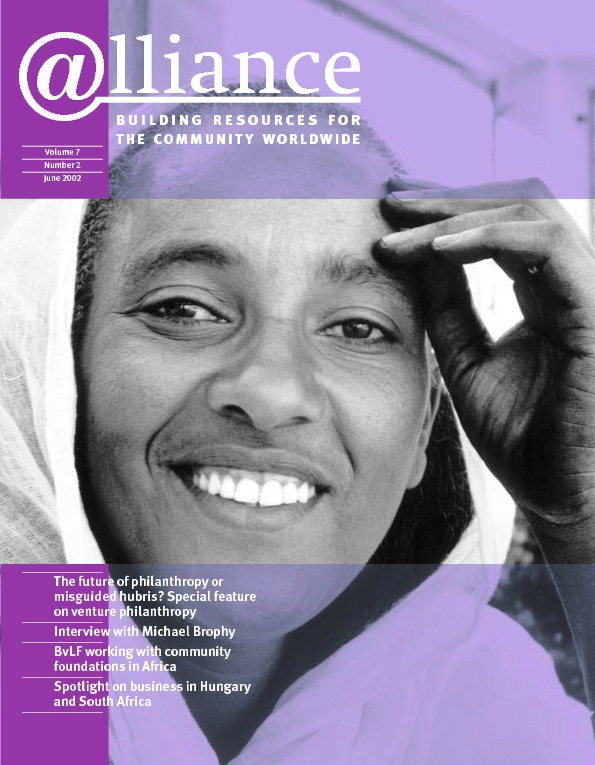In 1946 one man had a vision to combine the capital, disciplines and practices of commerce with the charitable objective of meeting human need. Back in those post-war years in the UK, Quaker philanthropist Cecil Jackson-Cole, using the proceeds of his estate agency business, was pioneering what some today would call venture philanthropy. Oxfam, Help the Aged and ActionAid are among the agencies he launched.
As its first Honorary Secretary, Jackson-Cole transformed the Oxford Committee for Famine Relief into Oxfam before going on to launch Help the Aged and ActionAid, borrowing investment tools we would more associate with the venture capital industry. His ideas were radical – in their day: national newspaper advertising, trading through charity shops, etc. In 1965 he created a charitable trust, World in Need (WIN), to continue his unique way of launching and growing charitable ventures.
World in Need
Venture philanthropy is a definitional minefield. Most agree, however, that venture philanthropists are highly engaged in their funding, adding considerable value beyond cash alone. WIN’s mission is to launch and grow the ideas of individual social entrepreneurs into thriving charitable ventures. WIN learned from Jackson-Cole that finance is not enough, even when you work with a visionary and capable social entrepreneur. In a form of highly engaged grantmaking, which owes more to commercial venture capital than traditional philanthropy, WIN can provide a charitable start-up with core funding and ‘finance plus’ – a start-up team of experienced trustees, access to networks and learning, and technical and legal assistance. And, like venture capitalists, WIN has an exit in mind. WIN’s ‘return’ on these investments is, at present, purely social – having helped create and nurture a cutting edge social initiative.
In the last 15 years WIN has launched six major charities; three are fully exited and viable;[1] two, in our current portfolio, are set to become sustainable in the next three years, and just one has failed to thrive. Today WIN has six ventures in its portfolio. Some are start-ups; others are existing small charities with the vision and potential to scale up to national impact. All benefit from a highly engaged form of philanthropy inspired by the visionary approach of Jackson-Cole.
The not-for-profit sector is evolving. Alongside more traditional charitable solutions to meeting social need, we see a new breed of social entrepreneur emerge. Such people want to create vibrant commercial enterprises that have a clear social mission. Their investors want to see financial and social return – the double bottom line. WIN, with its unique investment approach, believes in learning to work with social enterprises, some of which are formed around non-profit-distributing firms, with a mixture of funding appropriate for their needs – debt, equity and grant.
The bulk of WIN’s income comes from its shareholding in Jackson-Cole’s surviving business, Andrews Estate Agents, from which it also draws much of its human capital. Andrews is the UK’s largest privately owned estate agency and is in 100 per cent charitable ownership. For Jackson-Cole there was no division between commerce and charity. His businesses provided the risk capital and the people that transformed the charitable sector in UK.
Jackson-Cole died in 1979. He would no doubt be delighted by the current interest in venture philanthropy, which overlaps with his own practice of social venture capital.
1 ACET (providing education and home-based care for those with HIV/AIDS); Opportunity International UK (see box); Catch Up (primary school literacy – a joint venture with Oxford Brookes University).
Rob John is Director of World in Need. He can be contacted at rjohn@world-in-need.org.uk
For more information
http://www.world-in-need.org.uk
http://www.basicneeds.org.uk






Comments (0)